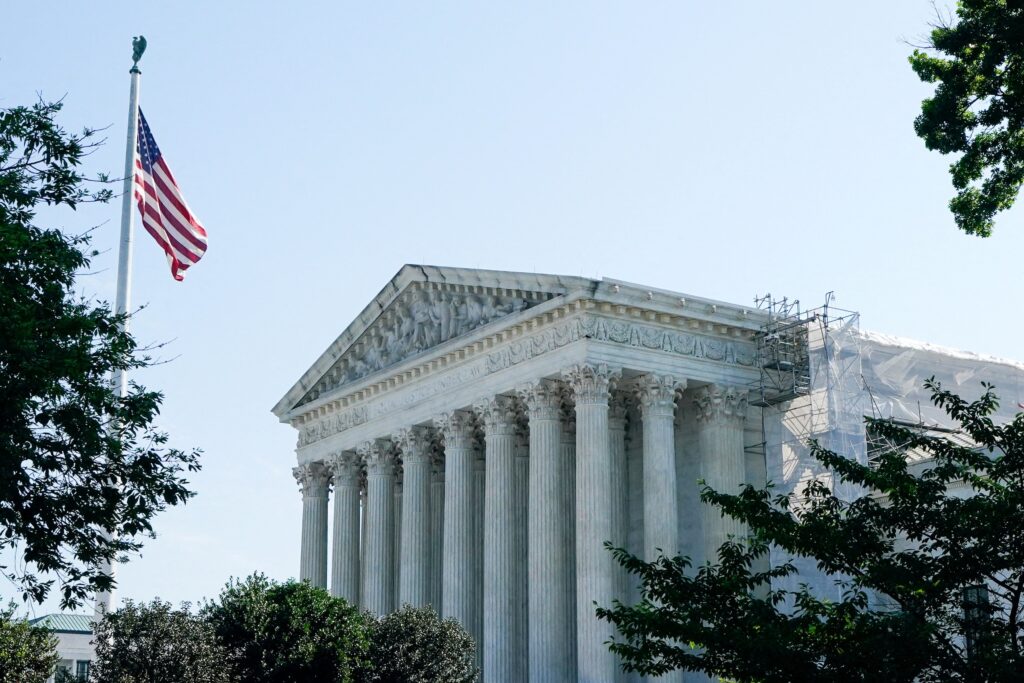
High Court Sends Catholic Groups’ Challenge to New York Abortion-Coverage Mandate Back to State Courts
By: Our Sunday Visitor
The U.S. Supreme Court June 16 remanded to the New York Court of Appeals the case of Diocese of Albany v. Harris

WASHINGTON (OSV News) — The fight by religious groups against New York state’s abortion mandate requiring most private insurance plans to cover abortion has renewed life.
The U.S. Supreme Court June 16 remanded to the New York Court of Appeals the case of Diocese of Albany v. Harris, a move that sends the case, in the words of lawyers for Becket, which handles religious liberty cases, “back to the drawing board” after bouncing between state courts for the past nine years.
A coalition of religious groups, including Catholic dioceses, women religious congregations, and faith-based social ministries, sued New York after the state mandated they cover abortion in their employee health insurance plans in violation of their religious beliefs.
In 2017, the state’s Department of Financial Services mandated employers in employee health insurance plans to cover both abortifacients and surgical abortions, although abortion has been legal in the state for decades prior.
Then state officials narrowed an exemption only to religious entities that primarily employ and serve people of their own faith.
At issue is who decides what constitutes a religious organization that can apply for an exemption to the abortion mandate. The religious groups were represented by lawyers from Becket and Jones Day.
In a statement, Becket’s vice president and senior counsel, Eric Baxter, said, “New York wants to browbeat nuns into paying for abortions for the great crime of serving all those in need.”
“For the second time in four years, the Supreme Court has made clear that bully tactics like these have no place in our nation or our law,” he said. “We are confident that these religious groups will finally be able to care for the most vulnerable consistent with their beliefs.”
Becket lawyers pointed out that New York’s exemption would not, for instance, extend to the Carmelite Sisters for the Aged and Infirm, who have care facilities in New York City, three surrounding boroughs, and the cities of Hartsdale and Albany, because the sisters serve clients regardless of religious affiliation.
“Mother Teresa would not be exempt,” Becket lawyer Daniel Blomberg told OSV News.
After New York courts refused to exempt religious organizations affected by New York’s mandate, the organizations asked the Supreme Court to take their case.
In 2021, the Supreme Court vacated the rulings by New York state courts and asked them to reconsider the case in light of its ruling in Fulton v. Philadelphia. In that case, the high court ruled Philadelphia’s refusal to contract with Catholic Social Services for the provision of foster care services — unless CSS agreed to certify same-sex couples as foster parents — violated the First Amendment’s free exercise clause.
New York courts found the Fulton decision inapplicable. On June 16, the Supreme Court asked New York courts to reconsider the case in light of the Supreme Court’s June 5 ruling in Catholic Charities Bureau Inc. v. Wisconsin Labor and Industry Review Commission, which affirmed that Catholic Charities could receive the same unemployment tax exemptions as other religious entities in Wisconsin.
“There’s still a long way to go,” Blomberg said, but added that Becket lawyers were encouraged by a reply brief from New York state officials to the Supreme Court earlier this month that conceded: “Indeed, we agree that, in light of the Catholic Charities opinion, some of the subject accommodation’s criteria are likely unconstitutional as applied to at least some of the petitioners in this case.”
New York legalized abortion through 24 weeks with a Republican-controlled Legislature three years before the U.S. Supreme Court’s Roe v. Wade decision, which was overturned in 2022, legalized it nationwide. In 2019, the state under Governor Andrew Cuomo and the Democratic-controlled Legislature expanded legal abortion even further throughout the third trimester.
In November 2024, New York voters approved what was called the Equal Protection of Law Amendment, which enshrines access to abortion in the state constitution.
– – –
Kurt Jensen writes for OSV News from Washington.

